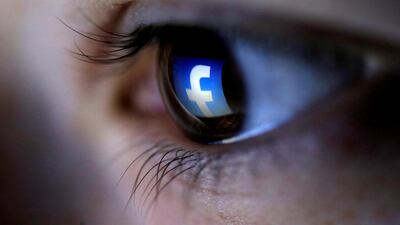People do not, of course, have to pay to use Facebook, it’s free.
The company’s revenues come mostly from advertising. But in light of recent controversies, there have been discussions, at least outside Facebook, about changing the business model. What if people had to pay to use it? How much would they be willing to spend? Any answers would tell us something important about the value of social media in general.
I recently conducted a pilot experiment to obtain some preliminary answers. Using Amazon’s Mechanical Turk, I tried to find out, from 400 Facebook users, exactly how much the platform is worth.
More specifically, I asked 200 Facebook users a simple question: “Suppose that you had to pay for the use of Facebook. How much would you be willing to pay, at most, per month?”
I asked 200 other Facebook users a different question: “Suppose that you are being offered money to stop using Facebook. How much would you have to be paid per month, at a minimum, to make it worth your while to stop using Facebook?”
According to standard economic theory, the two questions should produce the same answers. But they didn’t – not close.
For the first question, the median answer was just $1 per month. The average was $7.38. Nearly half of participants (46 per cent) said that they would pay $0 if Facebook tried to charge them a fee.
For the second question, the median answer was a whopping $59 per month. The average amount people would demand to leave Facebook was $74.99.
What’s going on here?
Behavioural economists, led by Nobel Prize winner Richard Thaler, have drawn attention to the “endowment effect”, which means that most people would demand a lot more to give up a good than they would be willing to pay to get it in the first instance. For example, people might be willing to pay $5 for a coffee mug with their college’s insignia on it – but if they are given such a mug, and are asked how much they would demand to sell it, they might say $10.
My pilot study finds an endowment effect, but it’s unusually high. That tells us something important not just about Facebook but also other goods provided by modern technology. The critical point is that we are now used to getting those goods for free.
_______________
Read more:
Cambridge Analytica shuts down after Facebook data scandal
Private data? You can’t put toothpaste back in the tube
_______________
With that point in mind, return to my first question. Having had to pay nothing for Facebook, people dislike the idea of a monthly fee. When almost half said that they are willing to pay $0, they are giving a protest answer, announcing: “If you are going to start charging me, well, then, forget about it!”
Those who said that they would pay only a small monthly amount (say, $10) might well have been thinking that Facebook is worth more than that, but registering their displeasure at the idea of suddenly having to buy something that has long been provided gratis.
What about the high numbers for the second question? Many of the subjects undoubtedly enjoy Facebook, and they resent the very idea that “someone” is trying to pay them to stop using the platform. They demand a lot of money to give up what they have.
As it happens, Professor Eric Brynjolfsson and doctoral student Avinash Gannamaneni of the Massachusetts Institute of Technology, along with Felix Eggers of the University of Groningen, recently tried to value use of Facebook by asking consumers if they would prefer: (a) to maintain access to the platform or (b) to give it up for one month in response to a specified payment.
This is called a “discrete choice experiment”. It does not ask people (as I did) how much they would pay for some good or how much they would demand to give up some good, but instead to choose between two identified options and to specify the one they value more.
In controlling for various confounding factors, Prof Brynjolfsson and his collaborators used highly sophisticated methods. They also used a large, nationally representative sample. Interestingly, the median answer was in the vicinity of $40 to $50 to give up Facebook for a month (slightly below the median answer to my second question).
Prof Brynjolfsson and his collaborators conclude that digital goods, including social media, are producing large, monetisable benefits that are not included in conventional measures of well-being, such as gross domestic product.
That conclusion seems right, but we need to add two qualifications. The first is that whatever numbers we generate will be an artifact of the particular method we use – and they might be a poor approximation of the actual value of digital goods.
The second is that we need better measures of the effects of such goods on people’s well-being. People might be willing to pay $10 each month for the right to use Facebook, or demand $60 to give up that right. But what are the effects on their actual experience? Are they enjoying life more, or less, or the same?
We are just beginning to get answers to these questions, and the results are mixed.
We need to learn much more.

